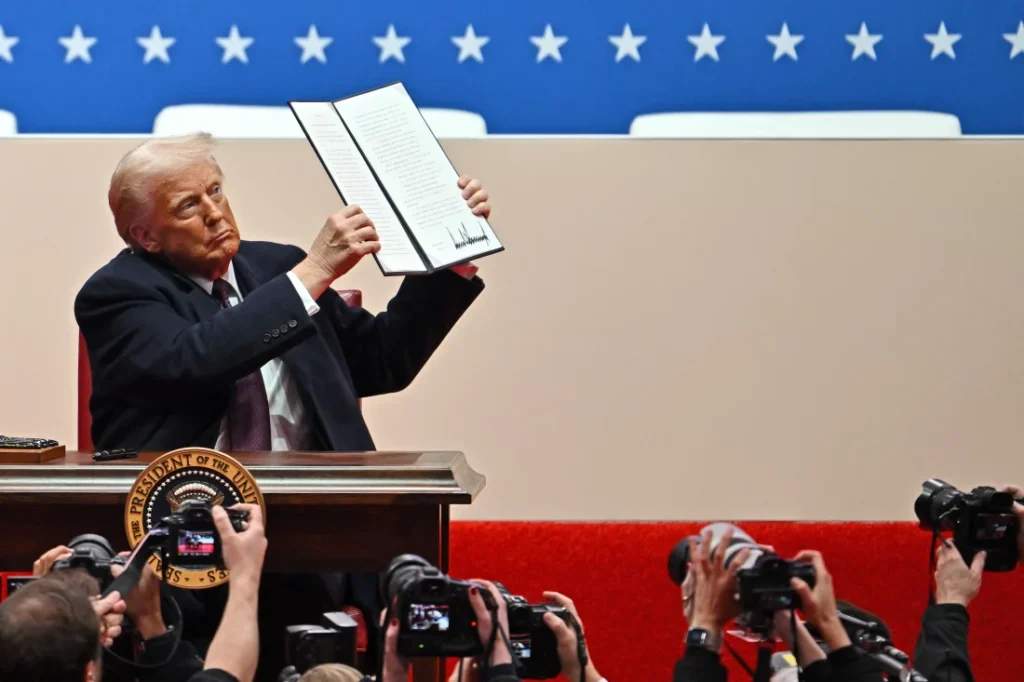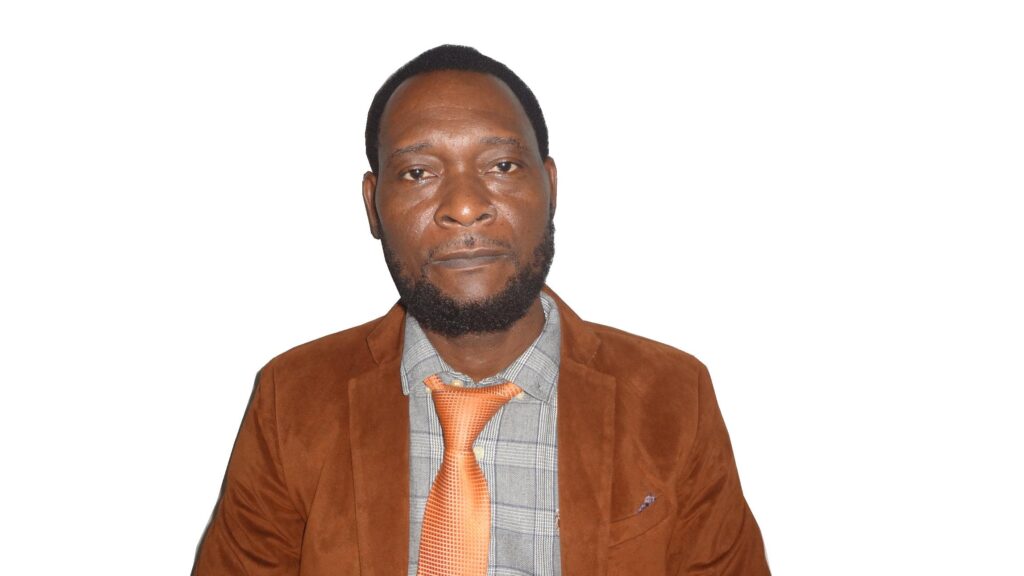24 Democratic States and Cities Challenge Trump’s Bid to End Birthright Citizenship
President Trump has signed an executive order putting an end to birthright citizenship for children born in the United States to non-citizen parents. But that controversy-ridden policy immediately entered a new battlefield—a legal one—with 24 Democratic-led states and cities suing to block its implementation. They are claiming that the executive order is violating the 14th Amendment of the U.S. Constitution automatically gives citizenship to everyone born on this U.S. soil.

Tuesday, an executive order signed by Trump says that the citizenship should not be granted to the children that are born in the country and whose parents are either here unlawfully or on temporary visas. This is one of the Trump administrations’ most aggressive moves to rewrite immigration laws.
The Legal Underpinnings of Birthright Citizenship
The other thing about 14th Amendment birthright citizenship is that, for over 150 years, it has been one of the most core things in American law. What the citizenship clause provides is, “All persons born or naturalized in the United States, and subject to the jurisdiction thereof, are citizens of the United States and of the State wherein they reside.” Since then, the provision has seen to it that all children born on U.S. soil are granted U.S. citizenship, regardless of parents’ status.
Related News
Donald Trump (President Elect of USA) Officially Sentenced in Hush-money Case
Nigerian Gospel Singer Jumbo Aniebeit To Perform at Trump’s Inaugural Ball
The executive order centers on the technical meaning of the phrase “subject to the jurisdiction thereof” in the 14th Amendment. Birthright citizenship critics—such as those who agree with Trump’s policy—say that children born to parents in the country illegally are not “subject to the jurisdiction” of the U.S. and therefore are not eligible for citizenship. Having said this, many believe this to be a misinterpretation of constitutional language, which very possibly serves only to exclude foreign diplomats and foreign occupying forces but not the children born to noncitizen parents.
18 states pushed back in a Massachusetts federal court, joined by Washington, D.C. and San Francisco, arguing that the president is acting outside the range of what he is constitutionally permitted to do. These states argued that the president cannot unilaterally take back a constitutional right that is guaranteed under the 14th Amendment. In fact, birthright citizenship has been affirmed by the U.S. Supreme Court in multiple cases and further codified through federal law that pre-dates the now-controversial 14th Amendment.
“The president can’t erase the Constitution with an executive order and the stroke of a pen,” New Jersey Attorney General Matthew Platkin, said in a statement. “Birthright citizenship has been part of the fabric of this nation for centuries.”
The new executive order has elicited a second complaint from the attorneys general of Washington, who previously won their suit, as well as Arizona, Oregon, and Illinois. This West Coast complaint was filed with the 9th U.S. Circuit Court of Appeals, which has been redrawn in terms of ideological composition over the last few years and has grown perceptibly more conservative.
Both hope to win a preliminary injunction to stop the policy’s implementation because, say both, the order would bring broad harm upon the communities concerned. The lawsuits have been propped up by the involvement of civil rights groups, among them the American Civil Liberties Union (ACLU), which piled up a separate lawsuit on the same day the states filed their lawsuit.
Related News
Donald Trump (President Elect of USA) Officially Sentenced in Hush-money Case
Nigerian Gospel Singer Jumbo Aniebeit To Perform at Trump’s Inaugural Ball
What It All Means for Immigrant Communities
The states and civil rights organizations charging the Trump executive order with lawsuits is just the tip of the iceberg. They argue that at least 150,000 children born to parents who are not lawful citizens would be prohibited from citizenship. These are now the kids, who with the new interpretation of the 14th Amendment, were given their United States citizenship but now had their legality established in front of the Federal government to be questioned. Not only that, the chance of deportation and rendering people stateless might come into the picture.
This would also have implications for the kids. The states in the case argued that they will be burdened with more financial responsibilities in service provision, as the children who will not be granted citizenship will not be allowed to partake in federally funded programs in health and education. At the same time, the states further argued that the children will be shut out from a myriad of federal services extended to all hence reducing social and economic participation of the U.S.
“At bottom, birthright citizenship is the defining rejection of all forms of discrimination,” said ACLU National Legal Director Cecillia Wang. “The president’s attack is not about birthright citizenship; it is an attack on the American community’s very heart and soul, quite literally.”
Related News
Donald Trump (President Elect of USA) Officially Sentenced in Hush-money Case
Nigerian Gospel Singer Jumbo Aniebeit To Perform at Trump’s Inaugural Ball
A Long-Standing Birthright Citizenship Debate
The debate surrounding birthright citizenship is as old as the hills. The concept, known as jus soli, or right of the soil, is an English common law concept. In this country, it too was only ever written into the 14th Amendment after the Civil War in an attempt to secure people, regardless of their race or ancestry, citizenship. Birthright citizenship was further settled by the 1898 decision of the United States Supreme Court in United States v. Wong Kim Ark, a child born in the US to immigrant Chinese parents, guaranteed birthright citizenship on US soil, although his parents could not become naturalized citizens.
Yet that tension remains: who should receive this right has sparked contemporary legal and political battles, especially under the heading of comprehensive immigration reform. Those who are against the Executive Order have said that it will dissolve the matter of illegal immigration, and strong advocates have said that it is a basic right for those children born in the U.S.
Related News
Donald Trump (President Elect of USA) Officially Sentenced in Hush-money Case
Nigerian Gospel Singer Jumbo Aniebeit To Perform at Trump’s Inaugural Ball
What Does the Future Hold for the Executive Order?
Legal cases surrounding Trump’s executive order will roll on for months, perhaps to the U.S. Supreme Court. Allowing his policy to stand unchallenged in the courts now might signal that something far-reaching is going on in the making of U.S. immigration law for generations of children born to non-US-citizen parents in the United States.
The birthright citizenship is only one of the issues at stake at the moment that is bound, sooner or later, to impact the outcome of a presidential executive order—struck down or not by a court for acting critically out of constitutionality.
Related News
Donald Trump (President Elect of USA) Officially Sentenced in Hush-money Case
Nigerian Gospel Singer Jumbo Aniebeit To Perform at Trump’s Inaugural Ball

Written by Agness Chika and Edited by Chibueze Onwuka
